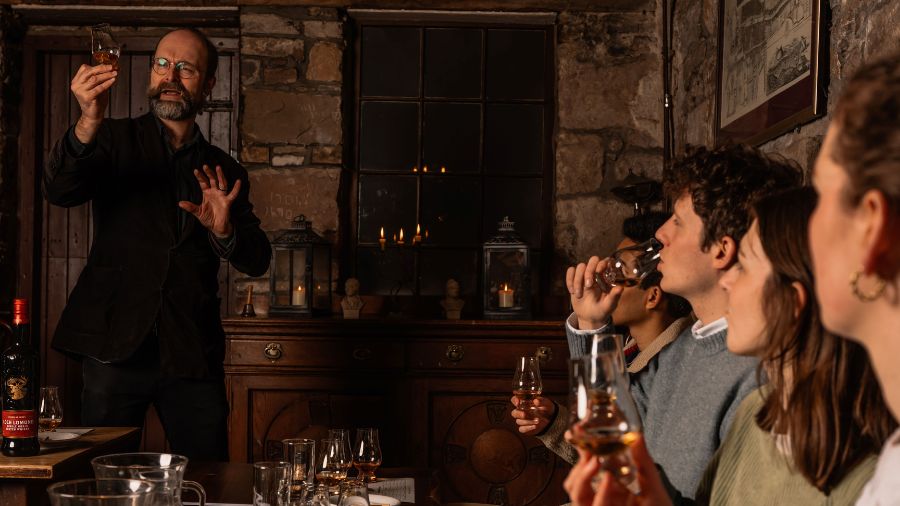In Celebration of Burns Night
8th Jan 2026On 25th January, we celebrate Burns Night in Scotland. It marks the birthday of Scotland's national poet, Robert Burns, born on that day in 1759. You might also hear him fondly referred to as Rabbie Burns.
This usually consists of eating haggis, neeps and tatties, and consuming copious amounts of whisky (or Irn Bru for the kids). Often, Burns’ poem To a Haggis is recited:
Fair fa’ your honest, sonsie face, Great Chieftain o’ the Puddin-race! Aboon them a’ ye tak your place, Painch, tripe, or thairm: Weel are ye wordy of a grace As lang ‘s my arm.

What is haggis?
Tourists often ask what exactly haggis is.
We could give a straight answer, but it’s much more fun to explain that it’s a small rodent-like creature, with shorter legs on one side so it can run around the hillsides in a clockwise direction.
When hunting them, always approach from an anticlockwise direction. They’ll try to turn around to run away, but of course, they’ll topple over and roll down the hill.
(If you’re looking for the real answer? Well, it’s a savoury pudding made from sheep organs, oats, onion, suet and spices. We promise, it’s tastier than it might sound!)
Who was Robert Burns?
Robert Burns is Scotland’s national poet. Anyone who spent their childhood in Scotland can recite at least two or three lines from a Burns poem.
Some of his poems are historical, like Scots Wha Hae, a poetic adaptation of Robert the Bruce’s speech before the Battle of Bannockburn. Others are political, like Such a Parcel o’ Rogues in a Nation, about the Treaty of Union in 1707.
Others are less political, such as the lament To a Mouse and the love song My Love is like a Red, Red Rose. And of course, there’s the New Year favourite Auld Lang Syne.
Although Burns was born in Ayrshire, he spent a significant amount of time in Edinburgh. It’s fair to say he had a very good time when he was here. If you believe all the stories about his activities in the city, probably half of Edinburgh is descended from him.
Many local pubs claim he once drank there. The joke is, of course, he did. He drank everywhere.
One of his most famous entanglements was with a married lady called Agnes McLehose. The two would write passionate letters to one another, using the pen-names Sylvander and Clarinda.
Agnes is buried in the Canongate Graveyard, which we visit on our Doomed Dead & Buried tour.
Scottish national holidays
Although St Andrew’s Day is Scotland’s official national day, it happens on 30th November when folk are already starting to think about Christmas. And for a long time, saints’ days were not celebrated at all in Presbyterian Scotland.
Burns’ Night has assumed the position as Scotland’s unofficial national day. It gives us an excuse to have a celebration in the middle of an otherwise quite bleak January-February midwinter.
Raise a dram in honour of Burns and savour the spirit of Scotland in a way he would approve of. Join us every weekend for an Edinburgh Whisky Tour & Tasting.

